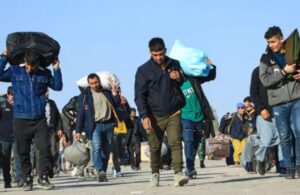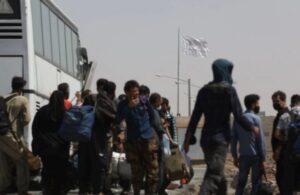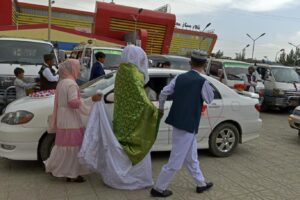MONITORING (SW) – A closed-door summit on Afghanistan ended Tuesday in Qatar without any formal acknowledgment of the Taliban-controlled government there, though the United Nations’ chief said they would hold another meeting in the future.
He did not elaborate, though the Taliban previously controlled Afghanistan from 1994 to 2001.
Absent from the meeting were the Taliban themselves, who took over Afghanistan in August 2021, reported the Diplomat.
Suhail Shaheen, the head of the Taliban’s political office in Doha, told The Associated Press that the new Afghan government dismissed the talks.
“If they are not ready to hear us and know our position regarding the issues, how can they reach a convincing and palatable solution?” Shaheen said. “One-sided decisions couldn’t deliver. Afghanistan is an independent country. It has its own voice; we want them to listen to our voice.”
Shaheen on Sunday met Andrew McCoubrey, director of Afghanistan and Pakistan at the United Kingdom’s Foreign Office, and Yue Xiaoyong, China’s special envoy for Afghanistan, in Doha.
“As you know, the U.N. envoy has talks with government officials in Kabul, but when it comes to these sorts of conferences … we are not invited,” Shaheen added. “We think this is not the solution for Afghan issues and its outcome can’t be effective.”
Afghanistan’s acting foreign minister, Maulvi Amir Khan Muttaqi, will travel to Pakistan’s capital, Islamabad, later this week to meet Chinese and Pakistani officials.
In the time since the Taliban seized power, Afghanistan has become the most repressive place in the world for women and girls, who are deprived of virtually all their basic rights, according to the United Nations.
Girls are banned from education beyond sixth grade and women are barred from working, studying, traveling without a male companion, and even going to parks or bath houses. Women must also cover themselves from head to toe and are barred from working at national and international non-governmental organizations, disrupting the delivery of humanitarian aid. Afghanistan remains wracked by poverty and hunger, squeezed like other nations by Russia’s war on Ukraine.
Meanwhile, concerns remain over Afghanistan again becoming a haven for Islamic extremists wanting to strike out abroad. The U.S.-led 2001 invasion came on the back of al-Qaida’s 9/11 attack on New York and Washington. Since the takeover, the United States has carried out drone strikes targeting suspected militants.
Those concerns have complicated how nations, particularly the West, deal with Afghanistan today.
ENDS






